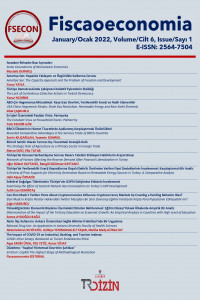Can Elon Mask's Twitter Posts About Cryptocurrencies Influence Cryptocurrency Markets by Creating a Herding Behavior Bias?
Can Elon Mask's Twitter Posts About Cryptocurrencies Influence Cryptocurrency Markets by Creating a Herding Behavior Bias?
Author(s): Çağrı HamurcuSubject(s): Behaviorism, Economic development, Financial Markets, ICT Information and Communications Technologies
Published by: Ahmet Arif Eren
Keywords: Behavioral Finance; Social Media; Bitcoin; Dogecoin; Influential Person Effect; Twitter;
Summary/Abstract: The main purpose of this study is to examine the effects of Elon Mask's Twitter posts about cryptocurrencies on cryptocurrency markets within the scope of herding behavior bias. For this purpose, the daily price values and transaction volumes of Bitcoin and Dogecoin are analyzed by applying the EGARCH models. The results show that Elon Musk's positive Twitter posts increase dogecoin's volatility more than bitcoin in terms of price and trading volume. In addition, the effect of positive tweets has been found to increase Bitcoin and Dogecoin prices and their market transactions. According to the results, while negative tweet sharing negatively affects bitcoin returns, it manifests itself with an increase in volatility after a certain period of time. Another result is that the Dogecoin return and negative tweet interaction vary according to time intervals, but the presence of the effect on volatility cannot be determined. It is also concluded that after the negative tweet, both bitcoin and dogecoin transaction volumes increased in the first days, but their volatility was not affected. The results are important in terms of showing the effects of an influential person's social media posts on the financial markets by creating a herd behavior effect. Revealing the "influential person effect" as a behavioral finance bias is seen as the originality of the study. It is thought that the findings can be evaluated in terms of pointing out a factor that may pose a potential risk to financial stability in the global sense.
Journal: Fiscaoeconomia
- Issue Year: 6/2022
- Issue No: 1
- Page Range: 215-228
- Page Count: 14
- Language: English

